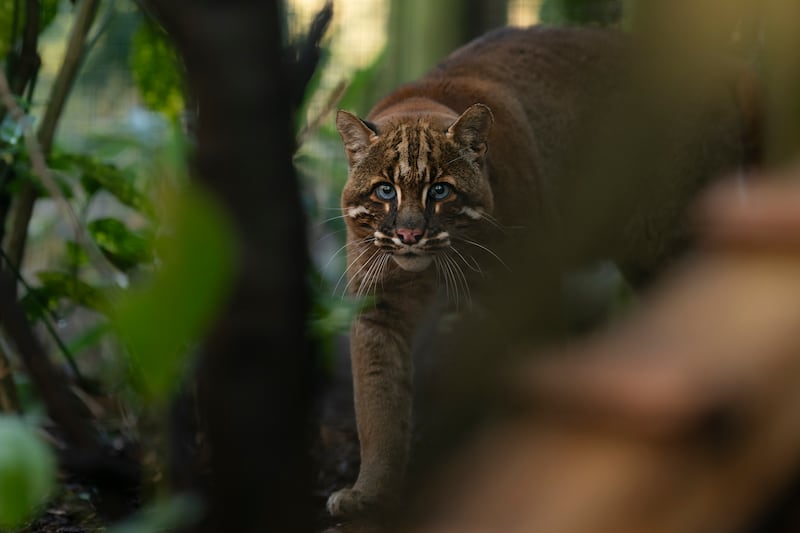Puppy farms in Northern Ireland take in £26 million a year, with half of that coming from just nine breeders in Fermanagh and Tyrone, an animal welfare charity has estimated.
Data collected by Naturewatch show that there are just 50 licensed breeders registered in the north, thought to be a fraction of total number of which operate in NI.
The data shows that one of those licensed breeders, based in the Fermanagh and Omagh District Council area, has 350 breeding female dogs.
Nine of the 50 breeding licenses are registered in the Fermanagh and Omagh area, with more than 1,300 female dogs registered under them.
Three local councils, including Belfast City Council, do not have any licensed breeders registered.
The total income the other local councils make from dog breeding licenses sits at just over £10,000.
Animal charity Causeway Coast and Dog Rescue estimates at least £26million is being brought in by the small number of licensed breeders, who are responsible for around 2,600 breeding females.
It says pups advertised on social media and online marketplace sites can cost buyers up to £1,800, with an average cost of £1,000. The charity says more than half of the estimated £26million in income comes from nine breeding licences in the Fermanagh and Omagh area.
The charity is calling on local councils and DAERA to adopt a new strategy to collect higher levels of income from licensed breeders, create a public register of those breeders and crack down on unlicensed breeders.
“Our calculations suggest councils have secured less than £11k of invoicing from the 50 breeding licences, while those breeders (take in) an estimated £26 million,” Causeway Coast Dog Rescue manager Tara Cunningham said.

“We have been calling on the Minister for DAERA to commission a formal review of the animal welfare service to ensure informed decisions are made for its future.
“Local government also need to step up and understand where funds can be raised within the service, especially in light of the figures. These figures are just the tip of a potential cash mountain available within the dog industry.
Natalie Harney, from the Naturewatch Foundation which collects the data on licensed breeders in the UK, said: “The map shows only 50 licensed breeders in the whole of Northern Ireland, which is shocking but sadly not surprising given the poor enforcement of dog breeding laws.
“There’s a significant illegal and low-welfare puppy trade in the UK, and it’s no secret that Northern Ireland is a major player, both as a producer of farmed pups but also as a key transport route.”
A statement from Fermanagh and Omagh District Council said it was liaising with other councils in the north on the issue, but it does not hold and is not required to hold records on the level of income generated by licensed breeders.
“Fermanagh and Omagh District Council is aware of the letter from Causeway Coast Dog Rescue and is liaising with other NI Councils to confirm the information presented and has also contacted DAERA on the matter,” a spokesperson said.
“Any establishment which meets the criteria to be classified as a regulated dog breeding establishment under The Welfare of Animals (Dog Breeding Establishments and Miscellaneous Amendments) Regulations (Northern Ireland) 2013 is required to apply for a licence from the relevant local Council and undergo inspection.
“The fee for a dog breeding licence is set out in the same piece of legislation and levied by Councils as per the legislation.
“Fermanagh and Omagh District Council can confirm there are nine licensed breeding establishments in the District. The Council does not, and is not required to hold any records on the level of income generated by individual breeding establishments.”
A spokesperson for DAERA said issues around undeclared income by breeders was a matter for HMRC.
“In 2015, HMRC set up a taskforce to tackle issues relating to undeclared income by persons involved in breeding and sales of dogs across the UK. If there are concerns about persons or businesses generating undeclared income from pet sales, this should be reported to HMRC directly,” DAERA said.
“DAERA actively partners with HMRC and local councils under the Paws for Thought initiative, which aims to deter the trafficking of low welfare pups through Northern Ireland.
“Where DAERA enforcement staff encounter persons suspected of illegally transporting pups or dogs for sale, reports are made to HMRC for investigation, as part of the agreed, multi-agency approach.”
Ulster Unionist MLA, Tom Elliott said: “While it is reported that the number of dog breeders that are licensed in Northern Ireland is 50, there is a belief that many more breeders are operating without being licensed.”
And he added: “I understand that licensed breeding establishments are subject to Council inspections and monitoring, whereas there are no authority management of unlicensed breeding establishments. It is important that those breeders who fit into the criteria or required to be licensed should do so, otherwise there is no opportunity to monitor and control the breeding establishments.”









